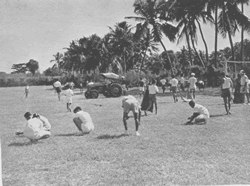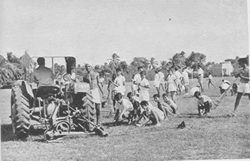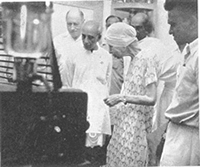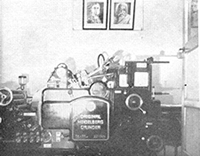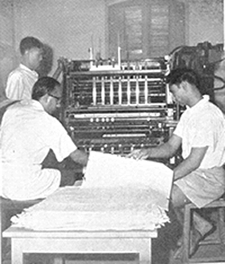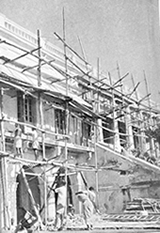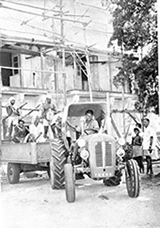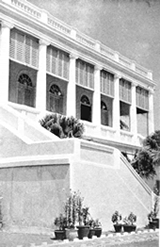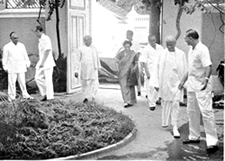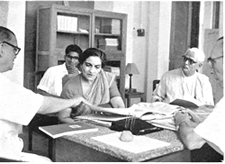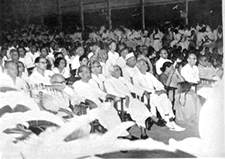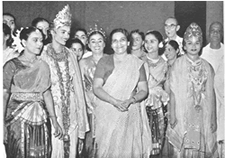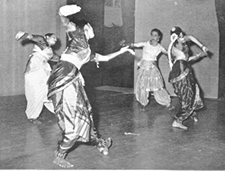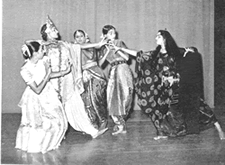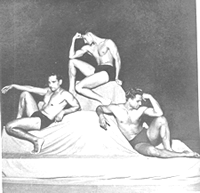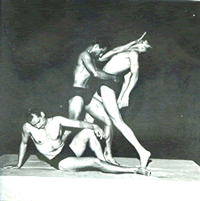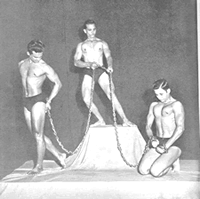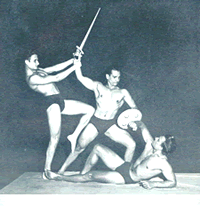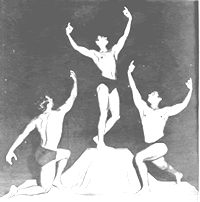|
qui, automatiquement, commencent à se supramentaliser. Tout cela est possible, mais c'est à l'échelle de l'individu. Tandis que, prenons l'exemple de ce qui se passe ici, l'individu qui reste au centre même de tout ce chaos, c'est là la difficulté ! Est-ce que, de ce fait même, ce n'est pas une impossibilité d'arriver à une sorte de perfection dans la réalisation ? Mais l'autre aussi, l'isolé dans la forêt, c'est l'exemple qui ne prouve pas du tout que le reste va pouvoir suivre, tandis que ce qui se passe ici est déjà une action beaucoup plus rayonnante. C'est ce qui doit se produire à un moment donné, cela doit se produire, nécessairement, mais le problème reste : est-ce que cela peut se produire en même temps ou avant que l'autre chose soit réalisée : l'individu, l'unique individu supramentalisé ? Il est évident que la réalisation, dans ces conditions de communauté ou de groupe, est beaucoup plus complète, intégrale, totale et, probablement, parfaite qu'aucune réalisation individuelle, qui est toujours, nécessairement, sur le plan extérieur, matériel, absolument limitée, parce que c'est seulement un mode d'être, un mode de manifestation, un ensemble microscopique de vibrations qui est touché. Mais au point de vue de la facilité du travail, je crois qu'il n'y a pas de comparaison.
(silence)
Reste le problème. Tous les gens, comme Bouddha et les autres, ont d'abord réalisé, puis ils sont rentrés en contact avec le monde, alors c'est très simple. Mais pour ce que j'envisage, est-ce que, de rester dans le monde, n'est pas une condition indispensable pour que la réalisation puisse être totale ?
|
the rest of mankind will be able to follow; whereas what is happening here is already a much more radiating action. That is what must happen at a given moment, that must happen necessarily, but the problem remains : can that happen at the same time or before the other thing is realised—the individual, the one single individual supramentalised ? Evidently the realisation under the conditions of the community or the group is much more complete, integral, total and, probably, perfect than any individual realisation which is always necessarily on the external, material plane, absolutely limited, because it is only a mode of being, a mode of manifestation, a microscopic set of vibrations that is touched. But from the point of view of the easiness of the work, I believe there is no comparison.
(silence)
The problem remains. All people, like Buddha and others, had realised first and then entered in contact with the world, it is very simple. But in regard to what I have in view, is it not the indispensable condition for the realisation to be total that one remains in the world ?
|

